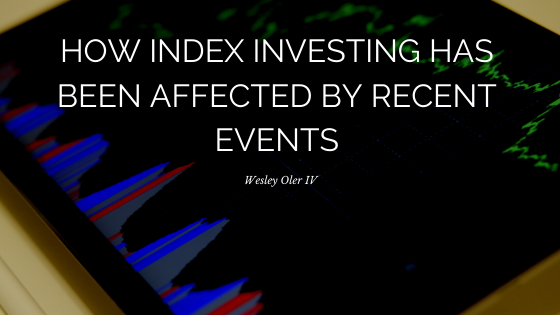The coronavirus has unfortunately taken its toll on many people around the world. With many residents ordered to stay home to prevent the spread of coronavirus, many businesses around the world have seen their revenues and profits drop dramatically. The sharp decline in business has forced some to close, and governments beginning to roll out stimulus packages to their citizens to keep the economy afloat. However, stocks have seen their best and worst days ever since the first case of the coronavirus was reported back in December of 2019. As of the time of writing this blog, stocks are at an all-time low worldwide. Many people who currently have stocks are selling them off until aid from the government arrives. There are some investors who see this as an opportunity to buy stocks at an all-time low. As discussed previously, there are many forms of investing. One area that seems to not be affected by the coronavirus is index investing. In fact, index investments have seen little activity in terms of increase or decrease in value. Here’s why index investing has not been affected by recent events.
To understand why index investing hasn’t been affected by recent events, it’s vital to understand what index investing is. Index investing is the process of using index funds to construct a strategic investment plan. Investors in this category choose which markets to invest in, the amount of money allocated to each investment, all while utilizing index funds to execute that plan. Unlike traditional methods of investing, index investing is passive and does not require much effort or time from the investor.
The principle of index investing is simple; make it efficient, require the least amount of investment possible, and stay consistent. Most investors in the market looking for a happy medium between long-term trends or short term gains. Index investors know this is impossible, so they focus on having a strategy that involves indexing for navigating challenging times, especially during economic turmoil.
Disclaimer: This article is meant strictly for informational purposes. Not intended as financial or investment advice. Do not misuse or misconstrue the information in this article. Seek advice from your personal financial advisor on matters pertaining to investments/finances.
